#b36
Text

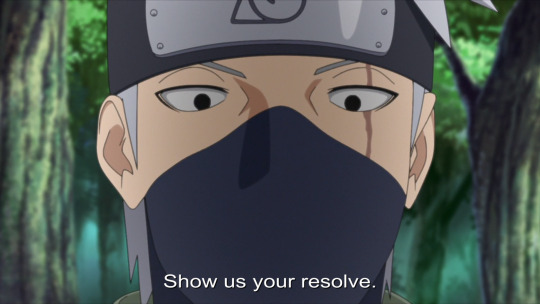
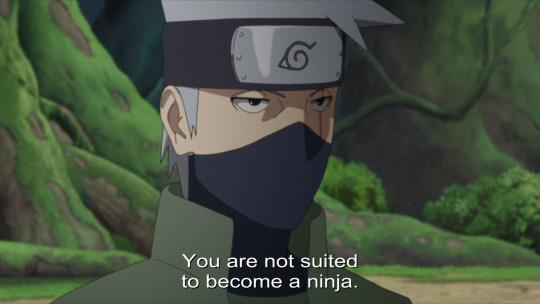
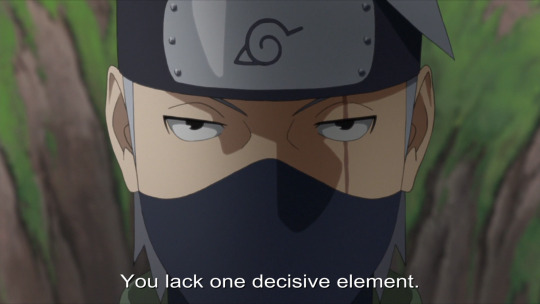
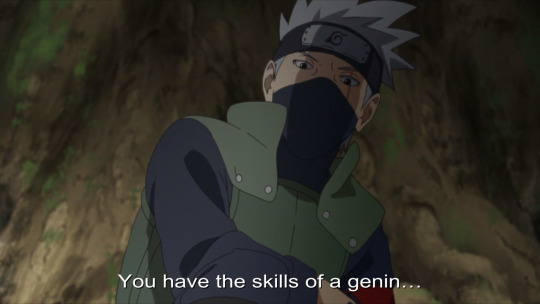
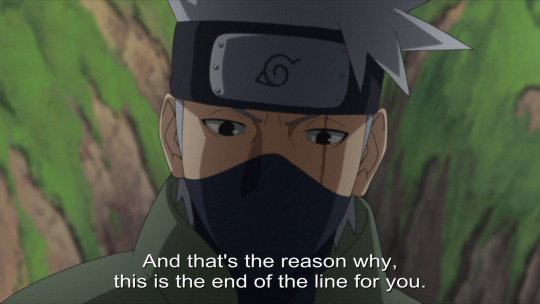

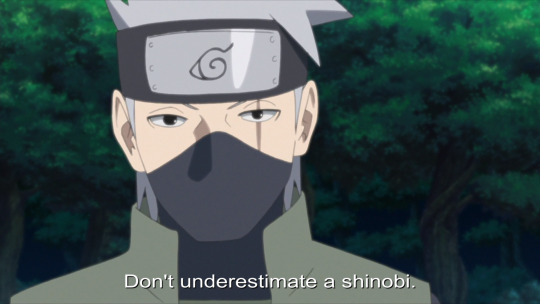
kakashi being very serious in boruto's graduation exam
#kakashi#kakashi hatake#boruto#he was like: 'i'm not here to play' and continued to beat those kids without thinking twice 😂#but i actually love that he kept following his motto even with the new generation#u know help ur friends or ur worse than scum#but above all that#he looks really hot all serious come on#b36#boruto 37#mine
234 notes
·
View notes
Text
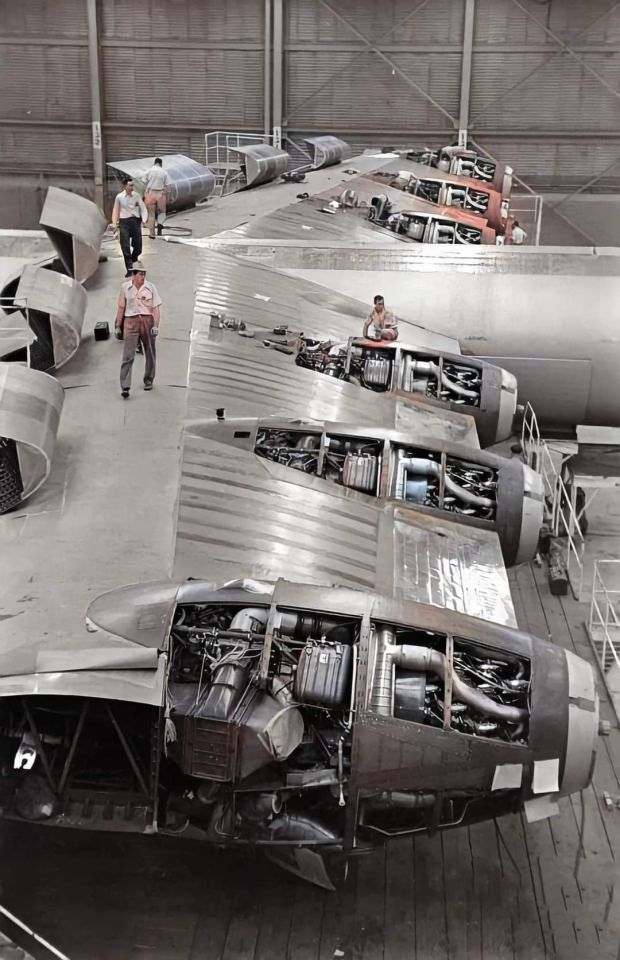
Convair B 36 on the assembly line
297 notes
·
View notes
Text

Introduced into service in 1949 and rendered combat obsolete 1950 by the introduction of the Russian MiG-15, this behemoth was relegated to other uses such as aerial reconnaissance largely because of it inability to be refueled in flight. They was finally scrapped 1959.
The Saturday Evening Post December 7th 1946
#vintage ad#advertisment#vintage ads#advertising#1946#b36#bomber#us air force#airplane#1940s#1940's#1940s ad#1940's ad#funny#humor#humour
51 notes
·
View notes
Text

B-36 Peacemaker
68 notes
·
View notes
Photo

Convair B-36 Peacemaker
#1940s#B36 Peacemaker#Convair B36 Peacemaker#Convair#B36#B 36#bomber#aircraft#aviation#warplane#hide and queue
109 notes
·
View notes
Text
The B-36 Peacemaker. 6 turning and 4 burning! Saw this plane at the Columbus air and space museum and let me tell you that you can't describe how huge she is! Only seeing her can you understand. We looked all over for it until we realized it was above us. She looms over the entire museum! Astonishingly Massive!!





11 notes
·
View notes
Video
youtube
The WWII Secret War Plan To Defeat Nazi Germany: Rainbow 5 | Rare Footage https://youtu.be/vgPDNV9F18U#WWII #Secret #WW2 #History #Aircraft #Airplane #bombers
2 notes
·
View notes
Photo
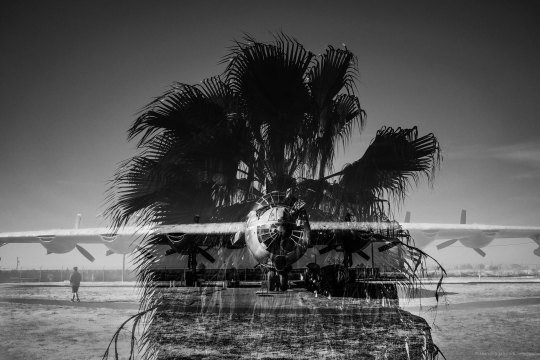
B-36 and Palm
(in-camera double exposure, Fujifilm x100v)
Another image of the massive 10-engine (6 piston props & 2 jets at the tips of each wing...not visible in this image) B-36 at Castle Air Museum.
#blackandwithephotography#double exposure#fujifilm x100v#x100v#aircraft#b36#Cold War#nuclear weapons
1 note
·
View note
Photo

in the bowels
“In the bowels of a B-36 bomber an Airman rides a scooter.”
September 1950
Quote taken from original text included with the image in the magazine
0 notes
Text

Conrail - Dolton, IL
Conrail B36-7 No 5030 leads a westbound auto train on the IHB at Dolton, in May 1987.
35 notes
·
View notes
Text

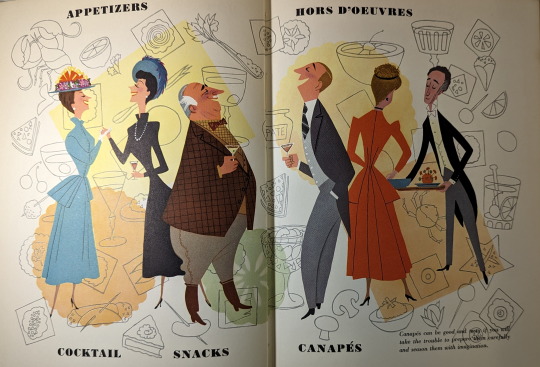
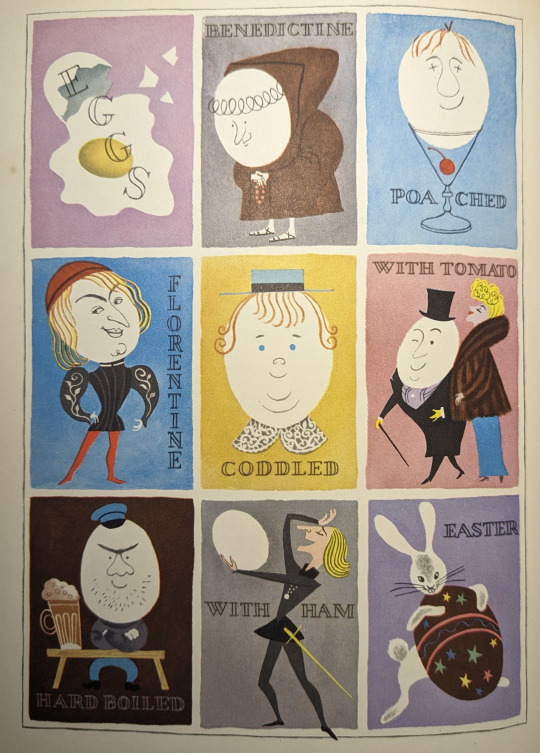
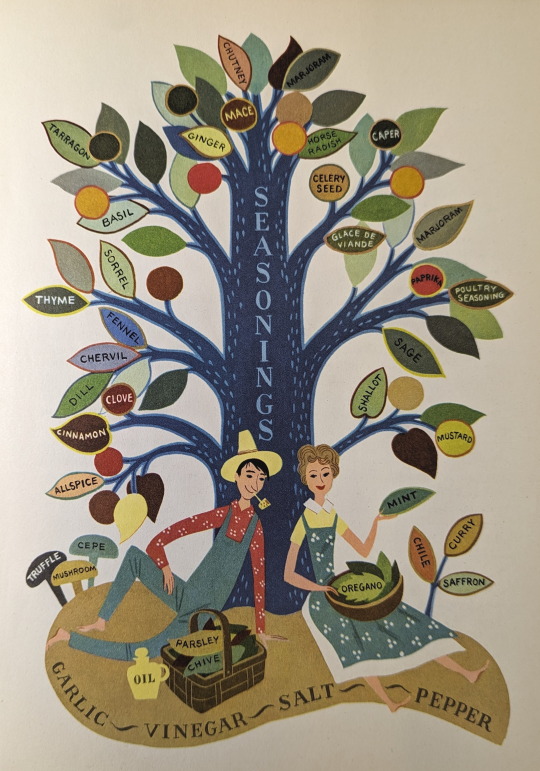
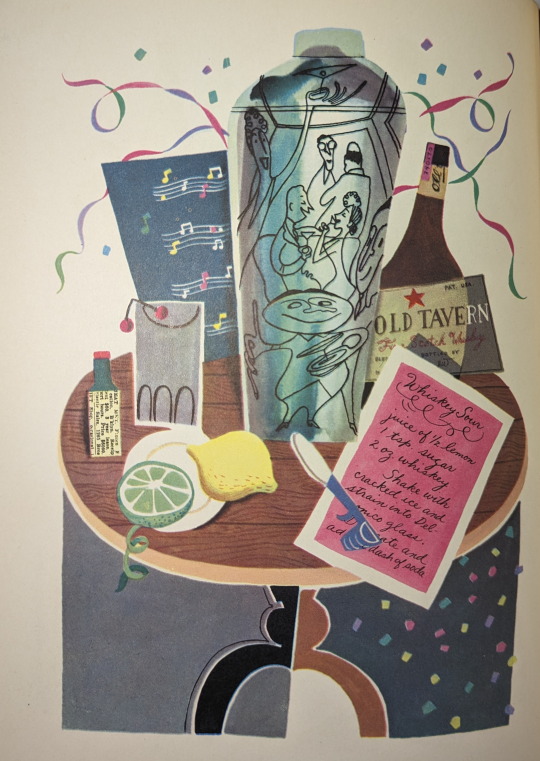
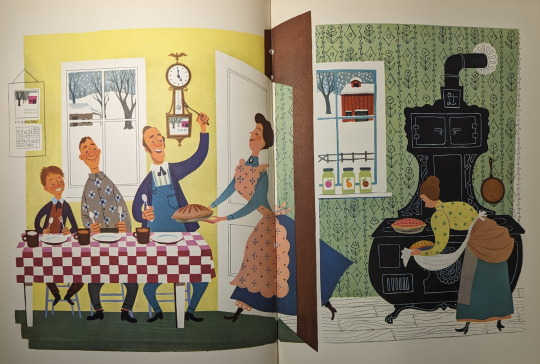
Just in time for the holidays, some cooking help from James Beard.
From: Beard, James. The fireside Cook Book. New York: Simon and Schuster, 1949.
TX715.B36 1949
#cookbook#cook book#James Beard#illustration#cooking#vintage cook book#1940s#holiday season#family#eggs#herbs and spices#whiskey sour#parties#party food#libraryofva#specialcollections#rarebooks
21 notes
·
View notes
Note
Do you think the Ever After could act as a parallel to the Garden of Eden?
you know what. asking me this when my latest post leads with me identifying myself as an evangelical apostate and after i’ve been caterwauling again about how rwby isn’t a christian narrative is kind of a power move, ngl. all biblical quotations to follow are from the NASB 1995.
one sidebar i want to make before getting properly into the actual topic of the garden, because it’s something i’ve been mulling over, is the absence from rwby’s cosmological mythos of a primordial ocean. that’s an interesting omission because of how common a motif it is in real-world mythology, christianity included. (In the beginning God created the heavens and the earth. The earth was formless and void, and darkness was over the surface of the deep, and the Spirit of God was moving over the surface of the waters. […] Then God said, “Let there be an expanse in the midst of the waters, and let it separate the waters from the waters.” God made the expanse, and separated the waters which were below the expanse from the waters which were above the expanse; and it was so. Gen. 1:1-2,6-7)
i’ve mentioned a handful of times before that rwby takes some noticeable cues from hellenistic philosophy and in particular heraclitus is pretty visible in the ever after—which is salient to the absence of a primordial ocean because the interior of the tree strikes me as a cosmic river flowing both from and around the everliving fire of the forge. see fragments B12, B30, B31, B36, B91, here is a general summary.
this has very little to do with the garden of eden question beyond the, like, broad comment that if analytical comparison between rwby and real world mythological and philosophical traditions is something that interests you generally, peruse what very little remains of heraclitus and also read plato’s timaeus and critias, because the influence is pretty strong.
anyway. back to genesis. the biblical story of creation goes like this:
on the first day, the deity speaks light into being, illuminating the formless waters of the void, and separates the night from the day.
on the second day, he creates a separation between the waters, above and below, and names the waters above the heavens.
on the third day, he parts the waters below and gathers them all into one place, drawing up the earth, which he calls the land and the sea. then he bids the land to become lush with vegetation.
on the fourth day, he creates the sun and the moon and all the stars to govern the passage of time, to mark the days and the seasons and the years, bringing order to the separation between night and day.
on the fifth day, he speaks into being all the creatures of the sea and the sky, the fish and the birds. (and this is no more arbitrary than the creation of the land together with vegetation; the air, remember, is the separation between the waters above and the waters below.)
on the sixth day, he creates all the animals that roam the land, and then he creates humankind in his own image, to “rule over the fish of the sea and over the birds of the sky and over the cattle and over all the earth, and over every creeping thing that creeps on the earth.” (1:26)
and on the seventh day, he rests, and sanctifies the day.
ok. so, i’m not going to get into the weeds of christian theology (<- apostate) so our engagement with genesis here is strictly as a literary text. with that in mind, there are two things i want to make note of:
first, that the biblical creation story is fundamentally about categorization: the deity creates things by naming them and the work of creation is made possible by the separation and definition of what had been a nameless and formless void. the deity first differentiates between day and night, water below and water above (separated by air), land from sea, and then systematically creates things to fill each new category. each day ends with the deity examining what he has made in order to determine that it’s good, and all the living creatures are instructed to “be fruitful and multiply,” in accordance with “their kind,” which is to say that all things are supposed to remain in their categories.
second, that the deity creates the celestial bodies to govern the heavens; he creates plants first, then animals, and to the animals he gives the plants; and lastly he creates man and woman in his own image to govern the whole of creation. the creation of the world itself is indistinguishable from the creation of a natural hierarchy: each new creation is given authority over what came before.
while there are some loose similarities here with how the ever after as it exists now came to be (in that one could make an argument for the separations of the primordial ocean as being akin to the clearing of the wilderness), the fundamental ideas articulated in genesis 1 and in rwby regarding the ever after are diametrically opposed: the notion of an inviolate natural order is, in rwby, textually rejected. balance “cannot be restored by force or calculation” because it “finds its own equilibrium”—and of course the whole point of ascension is that things do not need to remain as they are if they would rather be something else. a girl could become a cat, if she wanted to. the ever after is preoccupied not with designated purpose but chosen purpose, whereas the biblical creation myth is about the designation of purpose.
nevertheless there IS a clear parallel to draw here—between the biblical deity and the god of light. (this is where i stress, again, that i am not making a theological argument but a literary one.) consider the creation story of ‘the two brothers’ as it is told in the fairytale anthology:
first, the primordial dragon separates himself into light and dark.
second, the brothers create the heavens (celestial bodies) and the land.
third, they create animals (and grimm). it is at this point they begin to quarrel, because they cannot agree on whether dark’s contributions are good or bad.
fourth, they decide—to settle the argument—to create a new kind of being in their own image, capable of reason and will, which they agree will be given the freedom to “rule or ruin this world we have made for them.”
fifth, they fail catastrophically to leave well enough alone, fight about it, and go to sleep with the intention of judging humanity’s worth when they awake.
the similarity between this creation story and genesis 1 is much more pronounced, with the crucial difference being that the brothers, unlike the singular deity of the biblical story, cannot come to an agreement on what the natural order should be: every time one of them looks at what they’ve created and deems it good, the other disagrees and changes it.
revelations about their origin in V9 provided a great deal of context to their disagreement and vindicated me on the matter of dark not being the one who’s ultimately causing the problem; the details do not matter particularly to this discussion. the salient point is that light approaches the act of creation in the same manner as the biblical deity, but he exists in a cosmos to which that notion of inviolate, deliberate order is anathema. he is in the wrong story in a very literal sense.
now, insofar as the ever after might be intended as a kind of eden it would have to be for the brothers, yes? because they are the first emanations of the tree and the ever after is theirs to cultivate until their departure. and bearing in mind that at the heart of the narrative conflict is light being, in essence, the biblical deity transposed into a cosmos whose fundamental reality is diametrically opposed to the fundamental reality of biblical myth, there is an interesting angle to tease out here because:
Then the Lord God took the man and put him into the garden of Eden to cultivate it and keep it. The Lord God commanded the man, saying, “From any tree of the garden you may eat freely; but from the tree of the knowledge of good and evil you shall not eat, for in the day that you eat from it you will surely die.” (Gen 2:15-17)
and
The woman said to the serpent, “From the fruit of the trees of the garden we may eat; but from the fruit of the tree which is in the middle of the garden, God has said, ‘You shall not eat from it or touch it, or you will die.’” The serpent said to the woman, “You surely will not die! For God knows that in the day you eat from it your eyes will be opened, and you will be like God, knowing good and evil.” When the woman saw that the tree was good for food, and that it was a delight to the eyes, and that the tree was desirable to make one wise, she took from its fruit and ate; and she gave also to her husband with her, and he ate. Then the eyes of both of them were opened, and they knew that they were naked. (3:2-7a)
and
Then the Lord God said, “Behold, the man has become like one of Us, knowing good and evil; and now, he might stretch out his hand, and take also from the tree of life, and eat, and live forever”— therefore the Lord God sent him out from the garden of Eden, to cultivate the ground from which he was taken. So He drove the man out; and at the east of the garden of Eden He stationed the cherubim and the flaming sword which turned every direction to guard the way to the tree of life. (3:22-24)
again, there are loose parallels one could draw here with the blacksmith’s tale of the brothers, but the ever after simply does not function the way eden does: no part of the ever after is forbidden to the brothers and their departure from the garden is a gift, rather than a punishment. but consider the beats of the fall of man in the context of how light sees himself.
the temptation of the forbidden fruit is the temptation of divine knowledge—of becoming knowledgeable, and thus becoming godlike. the deity curses adam and eve to punish their disobedience, but that is not why they are cast out: they are made to leave because they have become like gods, and the deity does not want them to eat of the fruit of the tree of life. the expulsion from eden is a precautionary measure to ensure that humans continue to be mortal now that they have the capacity to understand (and thus fear) death.
now lay that against light’s perspective of the events leading up to his and his brother’s departure from the garden: they grew curious. they wanted to do more. they made the cat in deepest secrecy, and learned that they could make things to do their jobs for them. they make the jabberwalker—but he turns out wrong. they have introduced death into this world. their eyes are opened—they become gods. jabber is their fruit of knowledge. light (like adam, like eve) reacts to his newfound understanding with fear and shame, and tries to erase jabber for the same reason adam and eve scramble to hide their nakedness.
but creating jabber was not a sin. that is the critical difference: the tree does not judge or condemn; jabber and the cat find their places in the ever after and the tree gives the brothers a door to other realms where they can blossom into their divinity. the fear and shame light feels is his own creation—a self-inflicted curse—one he passes down to all his creations in the form of death as ending instead of change. his exile from the garden demands that the permanence of death be codified as a natural law, for the same reason that adam and eve are sent away from eden clothed. who told you that you are naked? who told you that things can die?
nothing guards the ever after’s door. light could return whenever he wished; but he cannot return because his own shame and his fear of what he created forbid it. how this is carried to its conclusion remains to be seen—although it seems inevitable that light will ascend, because he desperately needs to for his own and for remnant’s sake—but i do think rwby is doing something really interesting here with light in relation to biblical creation and the fall of man.
to eat of the fruit of the tree of knowledge is to become like god; the last act of creation is human defiance and apotheosis, and the experience of apotheosis is the creation of shame. for light both the defiance and the shame are illusory but, to him, deeply and painfully real, and this shame is at the center of him. he is eve who became god and exiled himself from his own garden.
#light: i’m not like a regular god i’m a cool god i have catholic guilt.#dark: what is wrong with you
39 notes
·
View notes
Text

National air races Cleveland
48 notes
·
View notes
Text

Michel Pignard, Albert Dufrène & Jacques Henry (Chevron B36 #76-07) 24 Heures du Mans 1977.© LAT ! Motorsport. - source Carros e Pilotos.
10 notes
·
View notes
Text

RB 36D Corvair bomber assembly
65 notes
·
View notes
Text
Fem Ruki Headcanons ☆ミ!


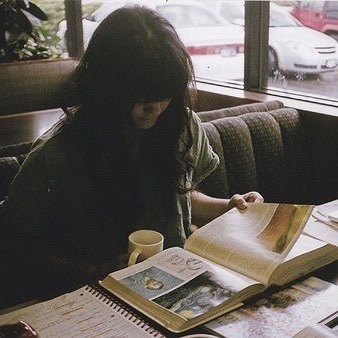





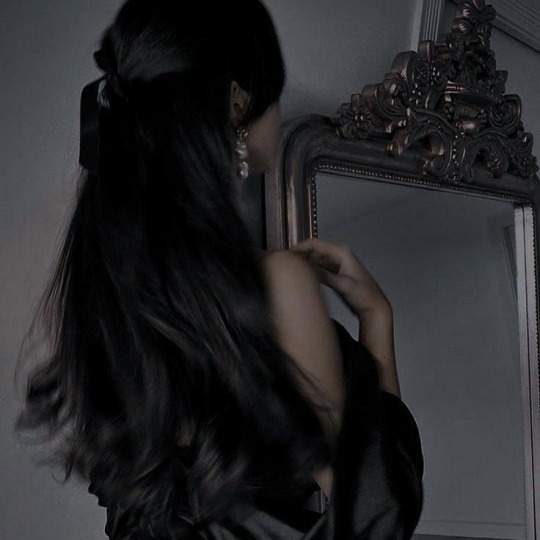
If you choose an option because it’s the only one, then you haven’t chosen. You’ve settled.
🖤 Four Measurements >>> Height 180 cm, Bust 80 cm,Waist 58, Cup B36
🖤 When it comes picking clothes to wear in a public setting, they MUST match
🖤 MOSTLY the clothes Ruki wears is black and anything with tights or stockings, button shirt or black crop top not showing A LOT of skin >>> Black heels even to go with any looks
🖤 Very light makeup wear >>> Eyeliner, mascara, lipgloss >>> For events in Eden, there will be the occasion she will paint her nails black or simply clear
🖤 Reads whenever the chance is open, in school, at home, even on the way home (whether that is by foot or not) And mostly it's by train
🖤 She likes the soft moist smell of old books within a dusty library, it's soothing and brings back decent memories of her life as a mortal
🖤 She likes the soft moist smell of old books within a dusty library, it's soothing and brings back decent memories of her life as a mortal
🖤 She likes the soft moist smell of old books within a dusty library, it's soothing and brings back decent memories of her life as a mortal
🖤 Ruki DOES have a rosary, a souvenir her mother left before running away after her father had committed suicide in the garden due to poverty at the time. There are some books her mother use to read in her own bed that stay at home in the library within the Mukami mansion
🖤 Ruki DOES have a rosary, a souvenir her mother left before running away after her father had committed suicide in the garden due to poverty at the time. There are some books her mother use to read in her own bed that stay at home in the library within the Mukami mansion
🖤 Growing up, being inclied to touching//masturbating was considered a sin >>> She use to be religious as a mortal, not anymore (obviously lol)
🖤 She enjoys wearing nightgowns that are short legnths to feel spacious under silk sheets, something loose and comfortable without having a need to wake up during said night (If you lucky to sleep with Ruki, you can smell a tinted scent of green tea along her polished skin)
🖤 There is a WELL coordinated way Ruki does cooking, whether that is for dinner or for any events hosatge at the mansion, this is the ONLY time she will wear clothing with dull colors or comfy appealing (Sweaters, sweatpants, hair tied back in a bun)
🖤Takes huge pride in cooking a whole lot of food (That Kou eats literally 1/2 of everything) and ALWAYS makes more or has left overs from that night (If it was just a small snack for Ruki herself, whether it would be during school or simply doing homework or reading at home, it's between yogurt or anything with gronola- something small)
🖤 Not too fond of listening to music, but will during study halls or even walking down to the store to buy something and will bring Azusa most of the times to help bring bags in the house >>> ALWAYS lofi or insturmental music (A good song example I pictured Fem Ruki listening to is >>> this)
#diabolik lovers#diahell#dialovers#nixxio headcanons#ruki mukami#mukami ruki#genderbend#diabolik lovers headcanons#moonboard#diabolik lovers moodboard#moodboard#nixxio moodboard
61 notes
·
View notes